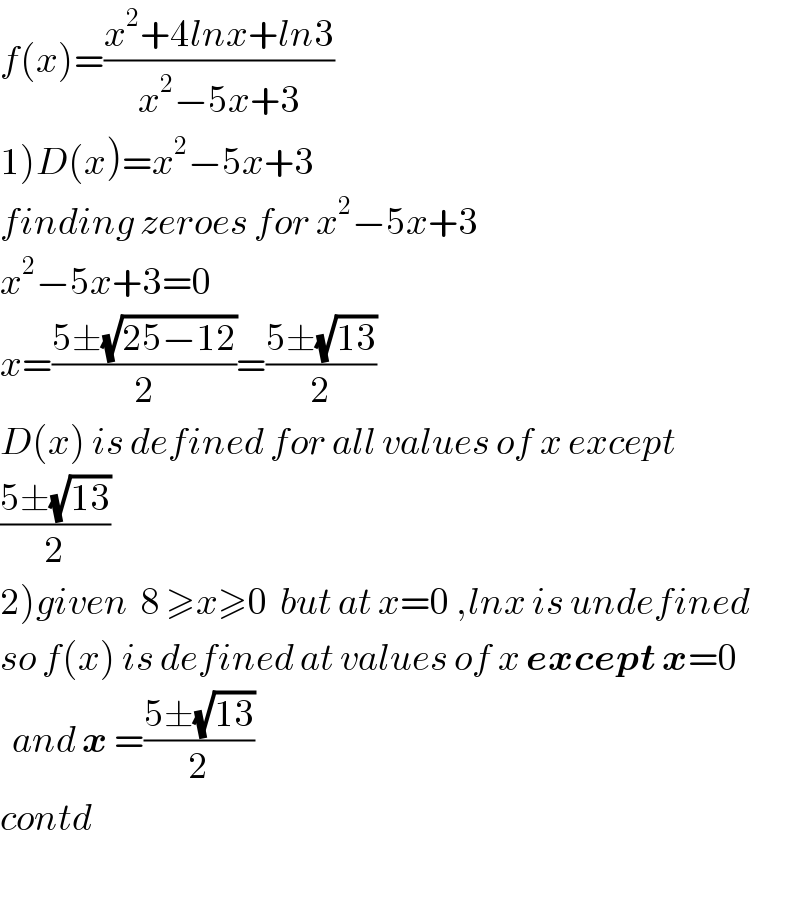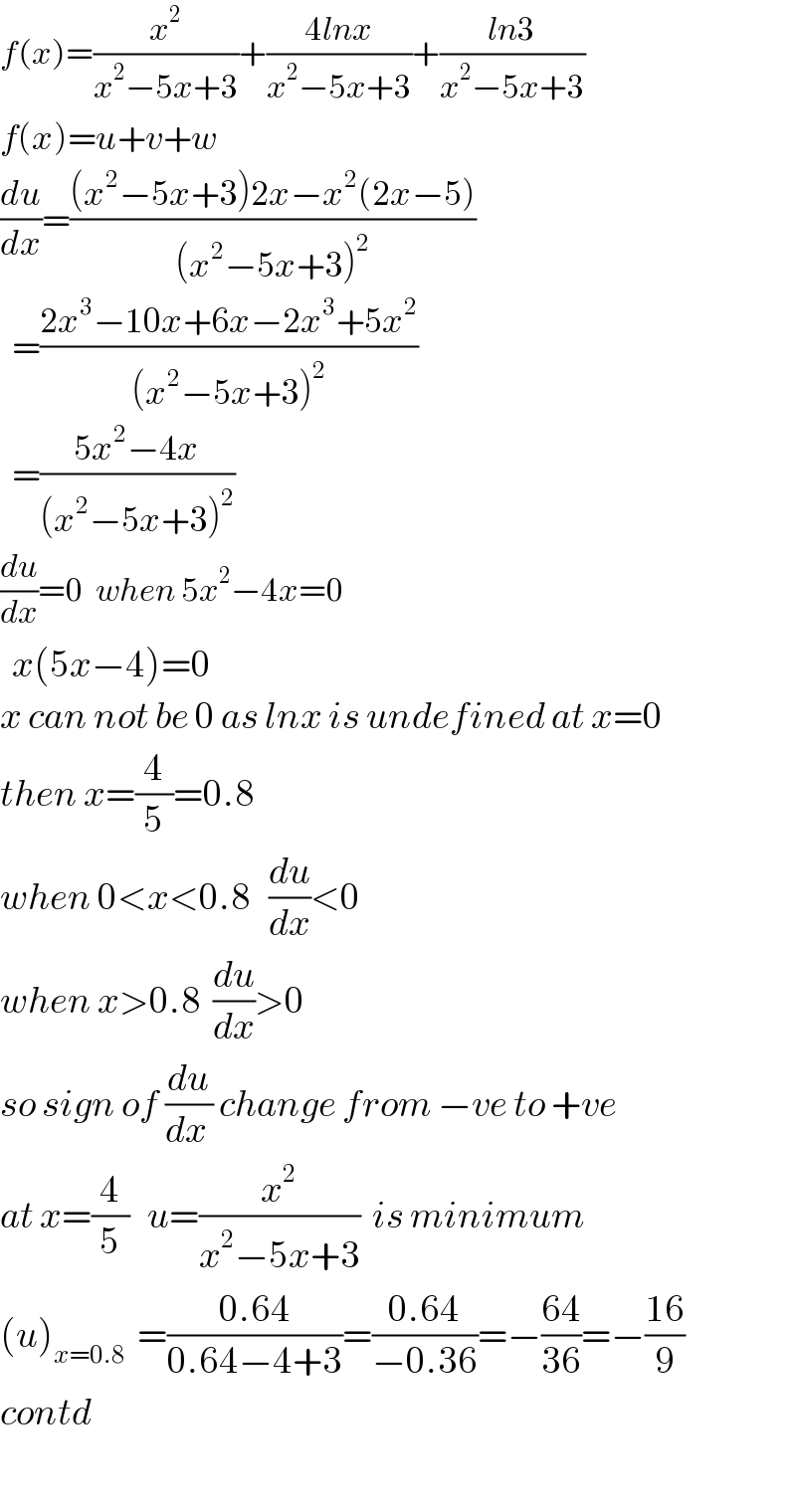
Question and Answers Forum
Question Number 41431 by Tawa1 last updated on 07/Aug/18

Commented by tanmay.chaudhury50@gmail.com last updated on 08/Aug/18

Commented by Tawa1 last updated on 08/Aug/18

Commented by tanmay.chaudhury50@gmail.com last updated on 08/Aug/18

